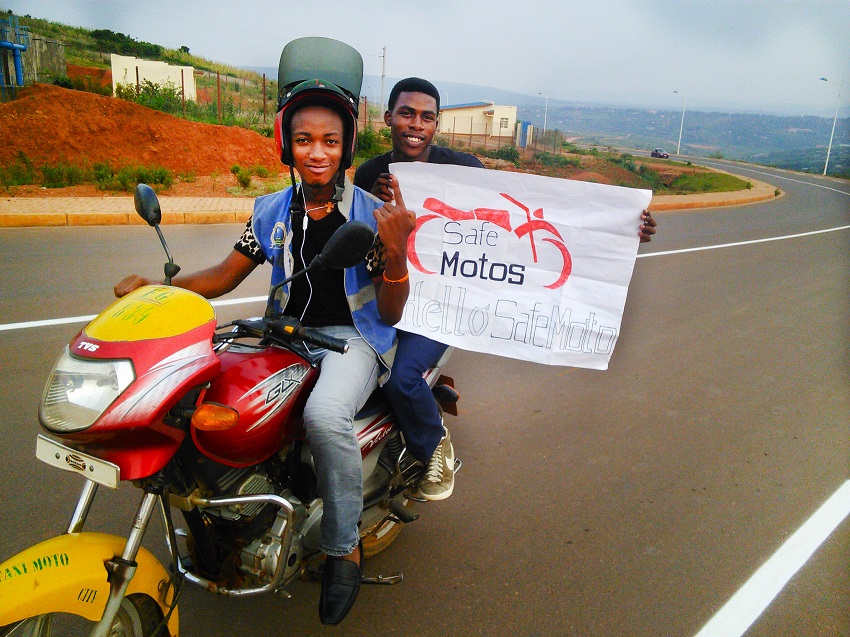For Barrett Nash, Rwanda is the perfect place to launch a tech startup. Having arrived in the country working on the one laptop per child policy in 2010, before it became a government project, he fell in love with it on account of it being a great place to launch innovative projects.
“You can use Rwanda as a test kitchen to cook something up,” Nash tells Disrupt Africa, pointing to the establishment of ICT entrepreneur visas, the fact registering a business takes only 20 minutes, the prevalence of free working spaces, the cheapest mobile internet data on the continent and the 4G network in Kigali as evidence.
“It is a really clean environment from a business perspective. The government has identified technology as the only way forward if they are going to have a good economy. It has decided having a hi-tech service economy is the way forward,” he says.
There are less congratulatory things to be said of the country’s road safety record, however. A Rwandan motorist is 263 times more likely to get killed in a traffic accident than in the United States (US), with 80 per cent of accidents involving motorcycles.
“Everyone has these terrible stories. Yet nothing seems to be being done. There’s kind of this acceptance,” Nash says.
His attempt to tackle this attitude is SafeMotos, an Uber-style app designed to make the country’s motorcycle taxi industry more efficient and less dangerous, which went live this week.
“We want to create a service that allows you to know you’re getting a safer driver,” Nash says.
SafeMotos is an Uber-style platform with a twist.
“From the front side it really is Uber, but we prefer the Hailo model. We’re working with pre-existing taxi drivers,” Nash says.
Users can pay with cash or an automated mobile money service on the app, with SafeMotos taking a commission fee.
However, the twist comes in the back-end. The startup has learnt from the vehicle telematics industry, which has been applied by insurance companies, with companies installing devices in cars that track driving habits. Updates to this software have now made it possible to do similar tracking with a smartphone, and SafeMotos is employing this tech to track drivers and register data, pushing bad drivers to the outskirts of the system.
“We only connect customers to drivers that meet our minimum threshold,” Nash says.
The startup has 15 drivers signed up so far, and is targeting 400 by year-end. Yet though it is still very early days, SafeMotos has already proved very popular with investors seeing opportunities in the growth of on-demand in Africa and the size of the market. Nash says the startup has already raised US$85,000 of its targeted US$120,000 in seed funding.
“We did quite well actually. We haven’t closed the round yet, but we’ve had some offers that would have allowed us to close the round that we’ve turned down,” he said.
The opportunity is huge in Rwanda, but Nash says it will serve as an effective “test kitchen” ahead of SafeMotos rolling out to other African countries.
“If we don’t leave Rwanda I would consider the project a failure. It is a fairly big market. In Kigali, there’s over 20,000 motorcycle taxis. For us we break even working with about 300. If we can get about 1.5 per cent of the market and break even that’s a good thing,” he says.
But other markets are even bigger. There are 40,000 motorcycle taxis in Kampala, 75,000 in Benin’s Cotonou, and 200,000 in Nigeria. The World Bank believes the number of motorcyles in the developing world will go up by 90 per cent in the coming years.
“We did the maths and in just seven cities across the continent there’s a total market of US$250 million,” Nash says.
“There’s no really good data on the scale of the opportunity, so the data I have put together, I feel it’s conservative.”
And Uber? If the market is so large and the opportunity so substantial, would the global giant – not to mention the likes of Easy Taxi – not consider adapting its model to include motorcycle taxis as well?
“We certainly see an exit strategy being acquired by one of those guys and we’re certainly worried about them getting into our space. But when we look at the trouble Uber is having getting into Nairobi, I think the changes to the app it would take are a barrier to entry,” Nash says.
These changes would include updating the app to make it sound-based, and able to handle the lack of electricity on bikes. Nash also questions whether Uber would have a realistic safety proposition, and how it would brand in such a scenario. But he says there are reasons why such a situation makes sense.
“I do believe that the scale of the opportunity is almost something I’m afraid to be talking about publicly,” he says.
“There’s more motos in a village in Kigali than in the whole of New York City. But I wouldn’t say that Uber is going to go tomorrow and switch onto the market. But it’s surely only going to be a matter of time, so that’s why we’re being quite aggressive.”


